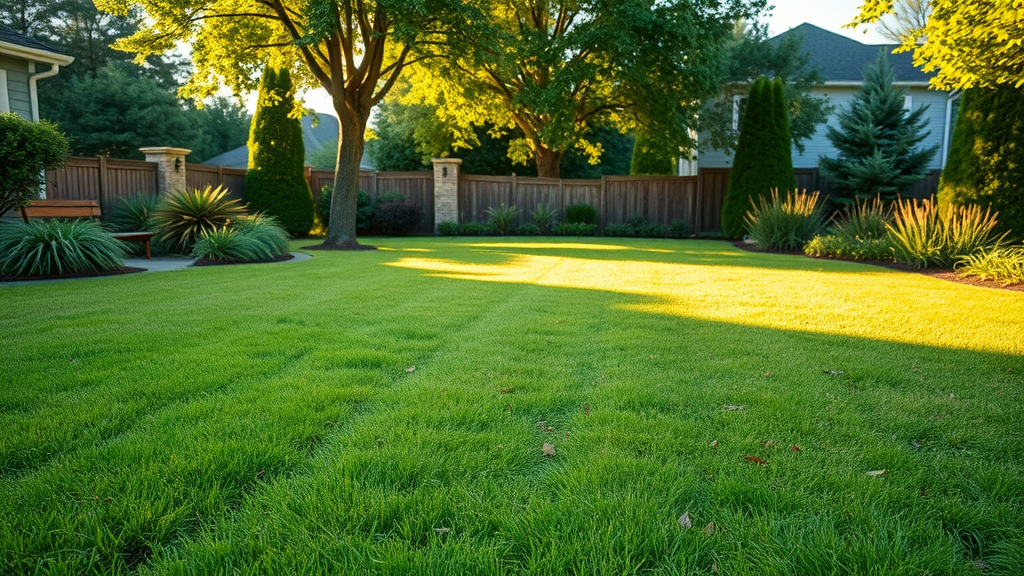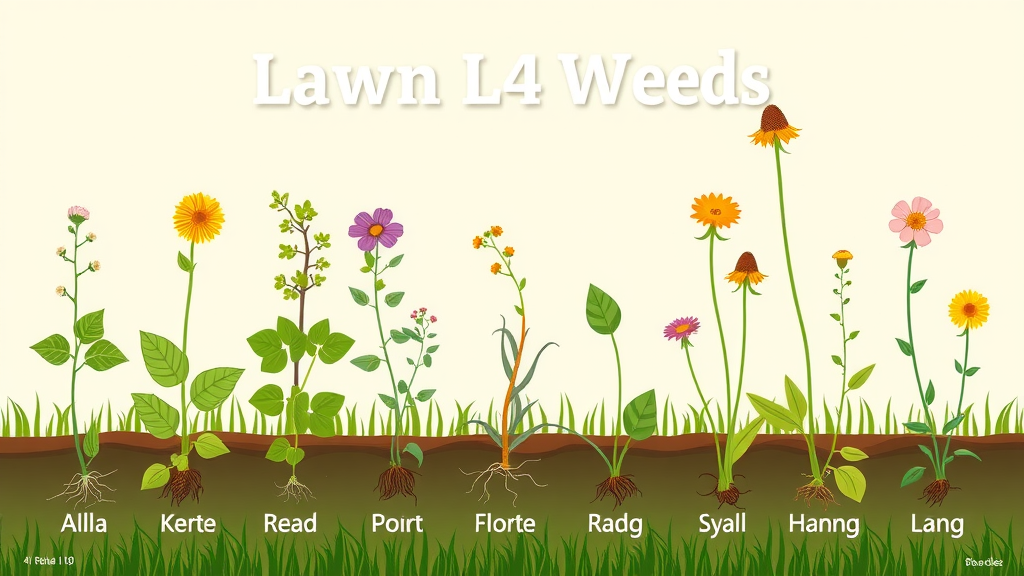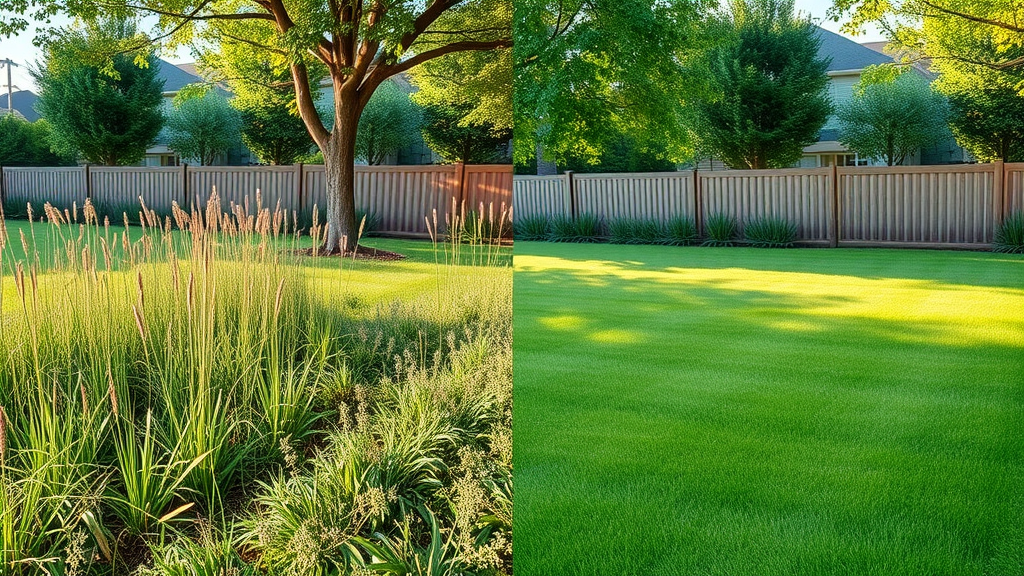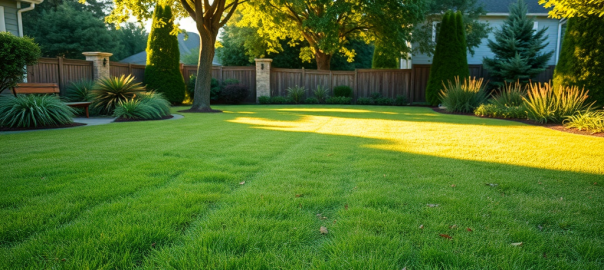Did you know? If left unchecked, invasive lawn weeds can decrease healthy turf coverage by up to 60% in just a single season . That dramatic transformation happens quietly beneath your feet—and if you’re not proactive about weed control , your lush lawn could turn into a patchy battleground almost overnight. But don’t worry! This guide reveals fast, science-backed hacks and professional insights that can save your lawn before weeds take over for good.
Revealing the Truth: Why Effective Weed Control Matters Now More Than Ever
Did you know that invasive lawn weeds can decrease healthy turf coverage by up to 60% in just one season? – National Association of Landscape Professionals
Today’s homeowners aren’t just fighting dandelions—they’re up against a whole new level of lawn weed invasions fueled by weather extremes and changing soil conditions. Why does weed control matter so much now? Neglected lawn weeds , like crabgrass, clover, and broadleaf weeds, can alter your yard’s ecosystem, steal precious nutrients, and suffocate desirable plants . Worse yet, unchecked weed growth creates a spiraling effect, encouraging weed seeds to spread further with every gust of wind or rainfall.
Effective weed management isn’t just about a tidy appearance. It’s vital for lawn and garden health, curb appeal, and even property value. Imagine a summer BBQ—but instead of plush green turf, guests are tip-toeing through a prickly obstacle course. Regularly using the right weed killer and preventive strategies nips this problem in the bud, protecting your time investment and ensuring your outdoor space remains safe, inviting, and vibrant all year long.

How Lawn Weed Problems Spiral Out of Hand: The Science Behind Weed Control
Most homeowners underestimate the tenacity of weeds—until they discover how fast weed growth can accelerate. Each weed competes fiercely for sunlight, nutrients, air and water , often outpacing even the healthiest turf. Lawn weeds are expert opportunists: Some lie dormant as weed seeds in the soil surface or hidden within your yard’s seed bank for years, waiting for the right combination of warmth, moisture, and light. Once conditions are perfect, they sprout in waves, often faster than your grass can recover.
Over time, if you neglect weed control , these invaders multiply exponentially. When one weed matures, it can spread thousands of new seeds, rapidly colonizing healthy lawn. This ripple effect turns one small weed patch into a full-blown crisis. Without strategic intervention—such as a targeted grass killer or regular herbicide application—your weed management efforts might barely keep up, especially with aggressive perennial weeds like dandelion doom.
Understanding Lawn Weeds: Types, Growth Patterns, and Threats
Not all weeds are created equal. Some, like broadleaf weeds (think dandelions, clover, chickweed), are easily spotted and targeted with selective herbicides . Others, like grassy weeds (crabgrass, foxtail), closely mimic the look of turfgrass but choke out grass seed and established sod if left unchecked. Then there are persistent perennials that endure seasonal changes, deep-rooted and difficult to eradicate with a standard weed killer .
Weed growth patterns also play a pivotal role in weed management . Annual weeds germinate, grow, and set seed within a single year, exploding in numbers if not tackled early. Perennials return from surviving roots year after year, while biennials like plantain take two seasons to establish, making them sneaky invaders. Understanding what type of lawn weed you’re battling is key for choosing the most effective solution—be it chemical, organic weed removal, or preventative action.

Critical Stages for Weed Control and Timing Basics
Timing is everything in the war against weeds. Catching weeds before they set seed is the holy grail of effective weed control . Early spring, before grass and weeds begin actively growing, is the window for pre-emergent weed killers that stop weed seeds from sprouting. As the season progresses, post-emergent products target visible weeds in lawns and gardens, especially when they’re still young and susceptible.
Critical weed management mistakes include ignoring pre-emergent opportunities, overusing a single herbicide (which can breed resistance), and ignoring the impact of improper mowing or watering routines. For instance, mowing too short exposes the soil surface and bathes buried weed seeds in sunlight—an open invitation for germination. Always read product labels to ensure you’re applying the right solution, whether it’s a selective weed killer or a robust grass killer for pathways and driveways.
- Ignoring pre-emergent opportunities
- Overusing a single weed killer
- Improper mowing or watering habits
- Applying the wrong grass killer
For even more practical advice on keeping your lawn in peak condition, explore these lawn care essentials that complement your weed control strategy . Integrating these foundational practices can help you maintain a healthier, more resilient yard all season long.
Top Weed Killers: Selecting the Right Solutions for Your Lawn
Choosing the best weed killers for your lawn means striking a balance between power, selectivity, and safety. The market offers a dizzying array of liquid herbicide options, from broad-spectrum weed killer for large infestations to gentle organic weed controllers. Some are designed only for broadleaf weeds , leaving your grass unharmed, while others (like total grass killer sprays) wipe out everything they touch. To maximize results, you need to match the product to both your lawn weed type and the season.
Advancements in weed killer formulations now allow for targeted attack—meaning you can kill weeds without risking your prized turf. However, relying solely on one method can lead to resistance, making integrated weed management essential. The key is to blend chemical treatments with organic hacks, smart timing, and consistent lawn care practices for reliable, long-lasting results.
Differentiating Between Weed Killer, Grass Killer, and Specialty Treatments
Weed killer typically targets broadleaf weeds —those with wide leaves like dandelions or plantain—while leaving desired grass unharmed. Grass killer (non-selective) annihilates all grassy and non-grassy plants alike, best reserved for driveways or mulched flower beds where no growth is wanted. Specialty treatments might focus solely on one tenacious weed or combine solutions for mixed-infestation turf, offering versatile coverage but sometimes at a higher cost.
When shopping for weed killers or grass killers, always check product labels for compatibility with your turf variety and the specific lawn weeds you’re targeting. Some products tout “weed and feed” formulas—combining nutrition with weed suppression—but their effectiveness can vary. When in doubt, consult a local lawn and garden center to ensure your herbicide application is both safe and effective.
Comparison of Leading Weed Killers for Lawn Weeds:
| Product Name | Method | Spectrum | Safe for Lawns | Avg. Cost |
|---|---|---|---|---|
| Spectracide | Chemical | Broadleaf Only | Yes | $ |
| Ortho Weed B Gon | Chemical | Broadleaf/Grassy | Yes | $ |
| EcoSmart Organic | Natural | Broadleaf Only | Yes | $$ |
| Roundup Grass Killer | Chemical | Total Kill | No | $ |
| Homemade Vinegar Mix | Natural DIY | Broadleaf Only | Yes | $ |
The Pros and Cons of Chemical vs. Organic Weed Killers
Should you go with a traditional liquid herbicide or try an organic weed solution? Chemical weed killers offer rapid, broad-spectrum results but can pose risks to pets, children, and the environment if misused. Overuse can also lead to chemical resistance among stubborn weed species, requiring a careful balance. In contrast, organic weed killers—such as vinegar, citrus oil sprays, or natural homemade blends—are pet-friendly and eco-conscious but often take repeated applications for deeply rooted perennial weeds .
Many homeowners find the best weed management strategy combines both methods: using organic weed controls in family or pet areas, reserving chemical weed killers for stubborn infestations or non-turf surfaces. Selective herbicides provide an effective middle ground by targeting specific lawn weeds while sparing grass seed and desirable plants . Ultimately, the smartest approach leverages each product’s strengths, tailored to your lawn’s needs and your values.
‘Using an effective weed killer tailored to your region and lawn type can double your weed control success rate.’ – Turf Experts, 2024
Smart Weed Control Hacks: Fast, Practical Steps That Work
No time for trial and error? These rapid weed control tactics deliver noticeable results—whether you’re prepping for backyard season or cleaning up after a harsh winter. Baking these proven hacks into your routine can shrink weed growth and boost the impact of your favorite weed killer or grass killer, all while reclaiming your lawn and garden .
- Apply pre-emergent weed control in early spring.
- Use targeted post-emergent weed killers on visible lawn weeds.
- Experiment with flame weeding for driveways and walkways.
- Mow higher to shade out emerging weeds.
- Mulch garden beds to suppress new growth.
These steps optimize your weed management process from start to finish. By focusing on both prevention and targeted intervention, you’ll break the weed seed cycle and create an environment where your turfgrass outcompetes the invaders. For added impact, align your mowing and watering habits with the specific requirements of your grass variety.
Flame Weeding: Can Heat Be Your Lawn’s Secret Weapon?
Flame weeding is making a comeback as an eco-friendly, chemical-free solution for sidewalks, gravel driveways, and hardscape zones overtaken by lawn weeds . By directing intense heat at the weed seed and growth points, a flame weeder causes rapid cell rupture—killing the weed within days or weeks without disturbing soil or introducing new seeds.
While flame weeding is not suitable for dense turf areas (you don’t want to harm your grass!), it’s ideal for targeting stubborn weeds in cracks and borders. Always use proper safety gear (goggles, gloves) and keep a fire extinguisher handy. For weed warriors looking to limit chemical exposure, this method offers shocking effectiveness and instant satisfaction.

Homemade vs. Professional Weed Killers: Which Is Better?
Homemade weed killers , such as vinegar mixes or boiling water, appeal to DIY enthusiasts wanting a more natural approach. They work by dehydrating or damaging the outer surfaces of young weeds—but may require several applications, especially for deep-rooted perennial weeds . Their cost is low, and they’re safe around pets and children, yet they may struggle on mature infestations.
Professional weed killers, on the other hand, pack a potent punch and offer extended residual control against broadleaf weeds, grassy invaders, and even dandelion doom. Products like Ortho Weed B Gon or Spectracide are designed with selective herbicides that maximize convenience for busy homeowners. If you’re in a hurry to reclaim your lawn after being overrun by lawn weeds , professionally formulated options usually deliver the fastest, most durable results.
Integrated Weed Management: Combining Grass Killer and Preventative Techniques
Integrated Weed Management (IWM) is the gold standard for sustainable, lasting weed control . Instead of relying on one solution, IWM layers multiple tactics for complete protection: chemical, organic, mechanical, and cultural. For instance, start with a pre-emergent to block weed seed germination, add spot-treatments for active weeds, and maintain consistent mowing and fertilization habits to keep your grass healthy and competitive.
The most resilient lawns blend the best attributes of weed killer, grass killer, and natural techniques. By timing interventions with weather, soil diagnosis, and lawn weed growth cycles, you’ll see measurable improvement—often within days or weeks. The result is greener, thicker turf that shrugs off future infestations with ease.
Real-World Results: Before and After Lawn Weed Control Success Stories
‘After using a targeted weed killer, our lawn was weed-free in three weeks without harming the grass.’ – Satisfied Customer
The power of effective weed management is best seen in action. Homeowners across the country have used combinations of pre-emergent, selective herbicide, and smart mowing to turn patchy, weed-infested lawns into showpieces for the neighborhood. The “before” is often a disheartening mess: tall, scraggly grass seed stalks littered with dandelion doom, clumps of broadleaf weeds throttling patchy grass.
Fast-forward two to four weeks after implementing proven weed control hacks—or hiring the pros at Scapes Unlimited LLC—and you’ll see uniform, deeply green turf replacing neglected eyesores. Many report success after just a single round of weed killer when paired with overseeding and routine feeding. Consistency, product selection, and timing make all the difference, and these stories prove that even the worst-case scenarios can be reversed with the right approach.

Permanent Solutions for Lawn Weeds: Long-Term Weed Management Tips
The ultimate goal of weed control is to stop weeds before they even start—a mission that goes beyond what most weed killers or grass killers alone can provide. Lasting success is tied to your lawn’s overall health, from choosing the right grass seed to routine soil improvement and scheduled interventions. With the right strategy, your lawn becomes its own weed warrior, crowding out invaders and bouncing back after seasonal stress like drought or heavy foot traffic.
Applying a holistic, long-term mindset pays off in reduced herbicide application costs, increased curb appeal, and less future maintenance. Investing in professional soil testing, pH balancing, and overseeding ensures your turf stays resilient, reducing the number of broadleaf weeds and persistent invaders over the long haul.
Lawn Health Strategies That Prevent Future Weed Outbreaks
Healthy grass is your first line of defense against weeds. Maintain optimal height when mowing so your grass shades the soil surface, preventing sunlight from triggering weed seeds to sprout. Regular feeding, adjusted by soil testing, ensures your lawn can outcompete most lawn weed species. Overseeding bare or thinning patches with fresh grass seed crowds out weed seedlings before they gain a foothold.
Additional habits, like routine dethatching and aeration, encourage strong grass roots, improve air and water movement, and discourage weed growth. Deep, infrequent watering keeps your turf robust while starving shallow-rooted weeds. Combining these strategies with smart use of selective herbicides or organic treatments ensures your lawn remains thick, vibrant, and nearly weed-free year after year.

Annual Lawn Weed Control Calendar: When to Apply Products
Timing your weed control efforts maximizes your lawn’s resistance to invaders. Early spring is the prime window for pre-emergent herbicides, creating a protective barrier against annual weed seeds . Late spring and early summer call for spot-treatment with weed killer or selective herbicides on visible weeds.
Fall is ideal for another pre-emergent round and for overseeding to shore up weak spots before winter dormancy. Throughout the season, monitor for sudden surges in broadleaf weeds or new weed seed banks—adjusting product type and amount of herbicide as needed. Staying ahead of the growth cycle means fewer headaches and less time spent in emergency mode.
- Soil testing and pH balancing
- Overseeding bare lawn patches
- Controlled irrigation to deter weed seeds
Expert Q&A: People Also Ask (PAA) About Weed Control & Lawn Weeds
What is the most effective method of weed control?
The most effective method is integrated weed management , which combines pre-emergent weed control, targeted post-emergent herbicide application, correct mowing and watering practices, and regular lawn health maintenance. By layering these approaches, you attack weed seeds at every stage—preventing future outbreaks while quickly eliminating visible weeds. Consistency and timing are crucial for best results.
What’s the best thing to kill weeds permanently?
A combination of selective herbicide for broadleaf and grassy weeds, along with improved soil health and dense grass coverage, offers the best chance at killing weeds permanently. Non-selective weed killers or grass killers may be used in non-lawn areas. Maintaining healthy turf and addressing new outbreaks immediately keeps weeds from returning year after year.
How do you permanently stop weeds from growing?
Permanently stopping weeds requires a multi-pronged approach: routine pre-emergent treatments, overseeding thin spots, keeping soil pH balanced and nutrient-rich, and mowing at the correct height. If you control the weed seed bank by disrupting germination and outcompeting invaders with vigorous turf, you significantly reduce future weed problems.
Does vinegar, Epsom salt, and Dawn really kill weeds?
This homemade mixture can kill young, small weeds by dehydrating foliage and disrupting growth. However, it’s less effective on mature or perennial weeds and may require repeated applications. For deep or stubborn infestations, professional weed killer solutions provide more reliable and permanent results.
Everything You Need for Weed Control: Buyer’s Resource Checklist
- Selective and non-selective weed killers
- Weed removal tools
- Lawn spreaders for pre-emergents
- Flame weeding torches
- Mulch and landscape fabric

FAQs: Addressing Common Weed Control Concerns
- How quickly should I see results after using a weed killer? Most chemical weed killers deliver visible results in a few days or weeks, depending on the product and weather conditions. Organic or homemade solutions may require more frequent applications but show gradual improvement over time.
- Are organic weed killers safe for pets? Organic weed killers—like vinegar solutions—are generally safer for pets and children compared to chemical alternatives. However, always check product labels and keep pets away until the treated area dries.
- What’s the difference between a grass killer and a weed killer? Grass killers are non-selective and eliminate all plant growth, making them suitable only for areas without desired plants. Weed killers are typically selective, targeting broadleaf or specific weeds while sparing grass and other crops.
- Can professional lawn services improve weed management effectiveness? Yes! Lawn professionals offer tailored herbicide application, soil diagnostics, and precision timing. This expertise often results in faster, more lasting weed control, saving you time and reducing costly mistakes.
Unlock a Lush, Weed-Free Lawn—Professional Weed Control from Scapes Unlimited LLC
Is your lawn looking tired, patchy, or just plain uncooperative? Let Scapes Unlimited LLC take the hassle out of lawn care and maintenance. From regular mowing and fertilization to weed control and seasonal cleanups, we’ve got your yard covered year-round. 🌱 Contact us today and give your lawn the expert care it deserves.
If you’re ready to elevate your lawn’s health beyond weed control, consider exploring Georgia’s best-kept secrets for comprehensive lawn maintenance . Discover advanced strategies, local insights, and expert tips that go far beyond the basics—empowering you to create a thriving, resilient landscape. Whether you’re tackling stubborn weeds or aiming for year-round curb appeal, these resources will help you unlock the full potential of your outdoor space. Take the next step and transform your lawn into the envy of the neighborhood with proven, professional guidance.
To further enhance your weed control efforts, consider exploring these authoritative resources:
- “Six Tips for Effective Weed Control” ( finegardening.com )
This article offers practical strategies, such as close plant spacing and timely mowing, to effectively manage and prevent weed growth in your lawn.
- “Managing Weeds in Lawns” ( extension.umn.edu )
Provided by the University of Minnesota Extension, this guide delves into cultural control methods and responsible herbicide application, emphasizing the importance of proper timing and techniques for optimal weed management.
By integrating these expert insights with your current practices, you can achieve a healthier, more resilient lawn.

